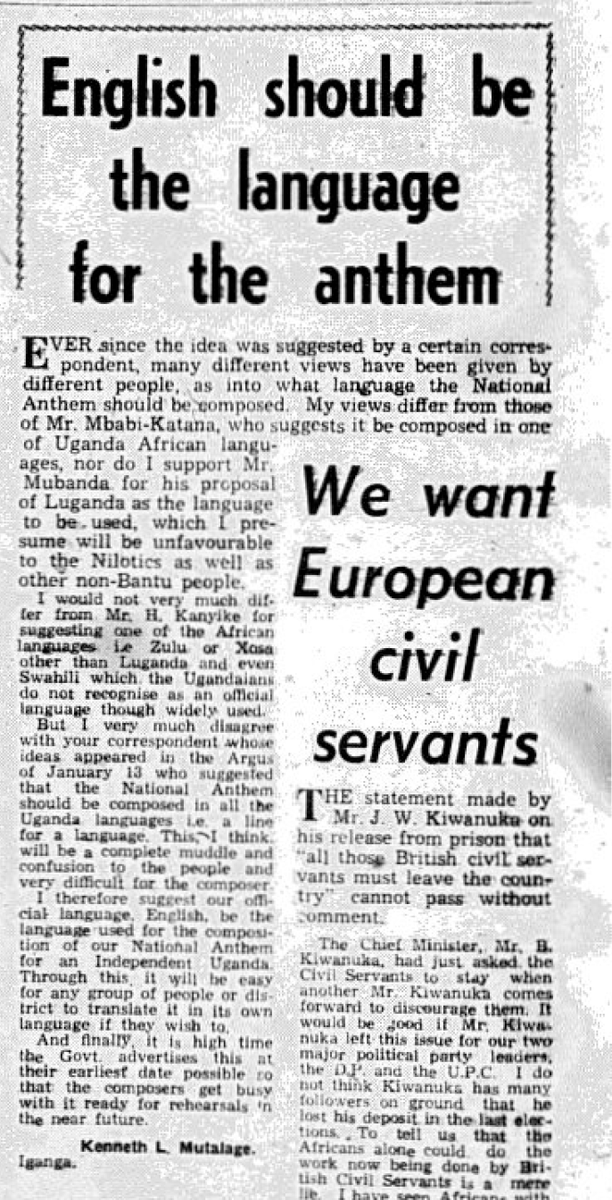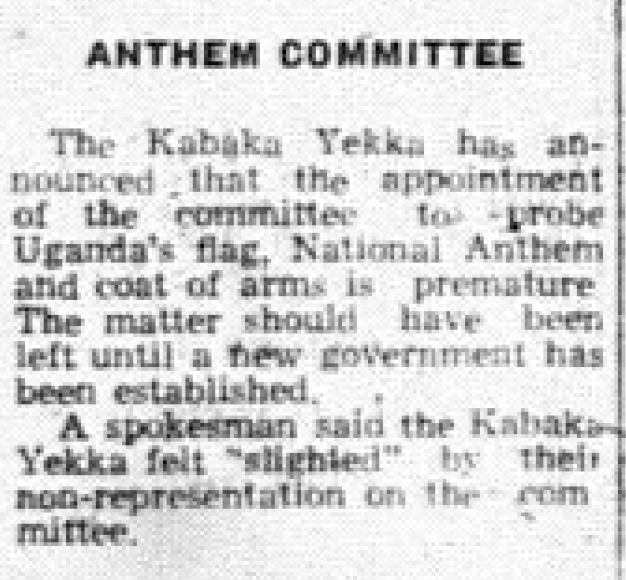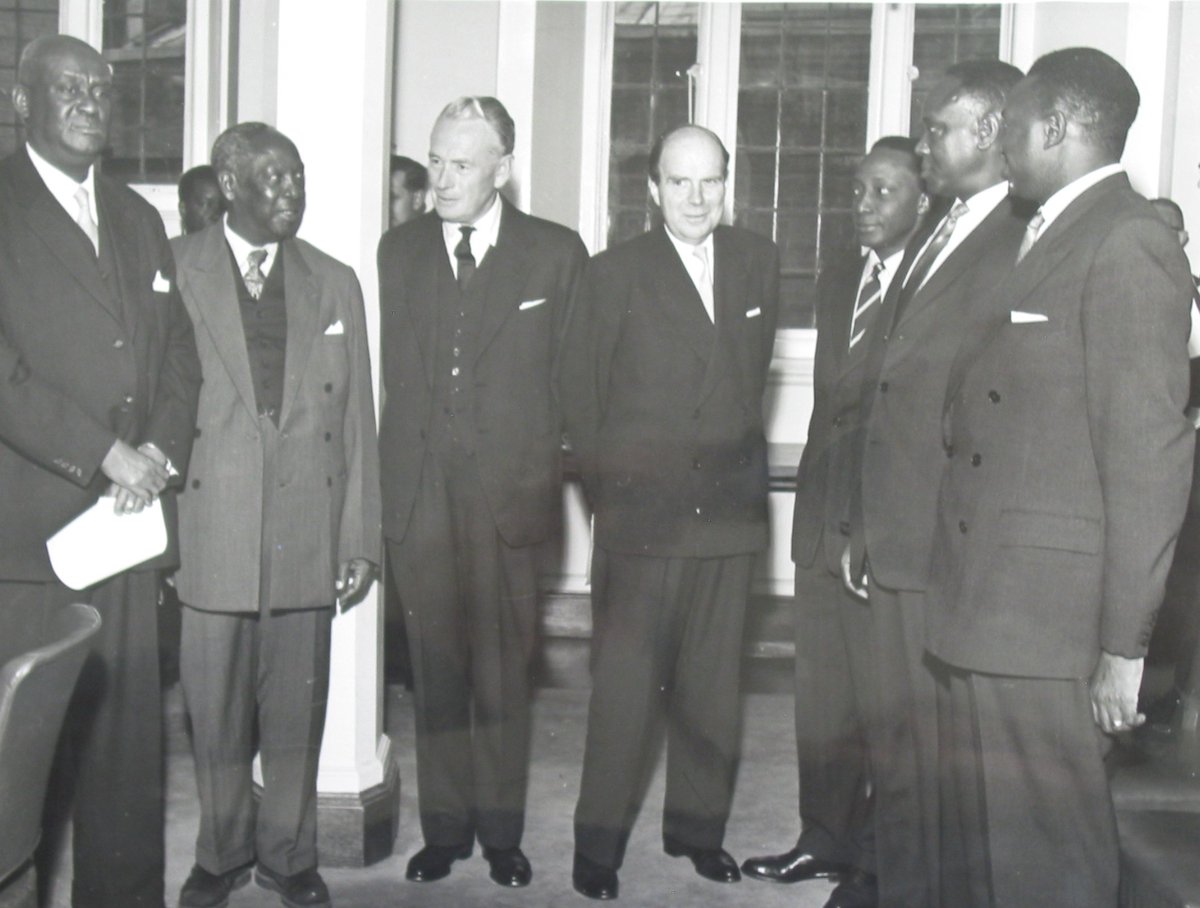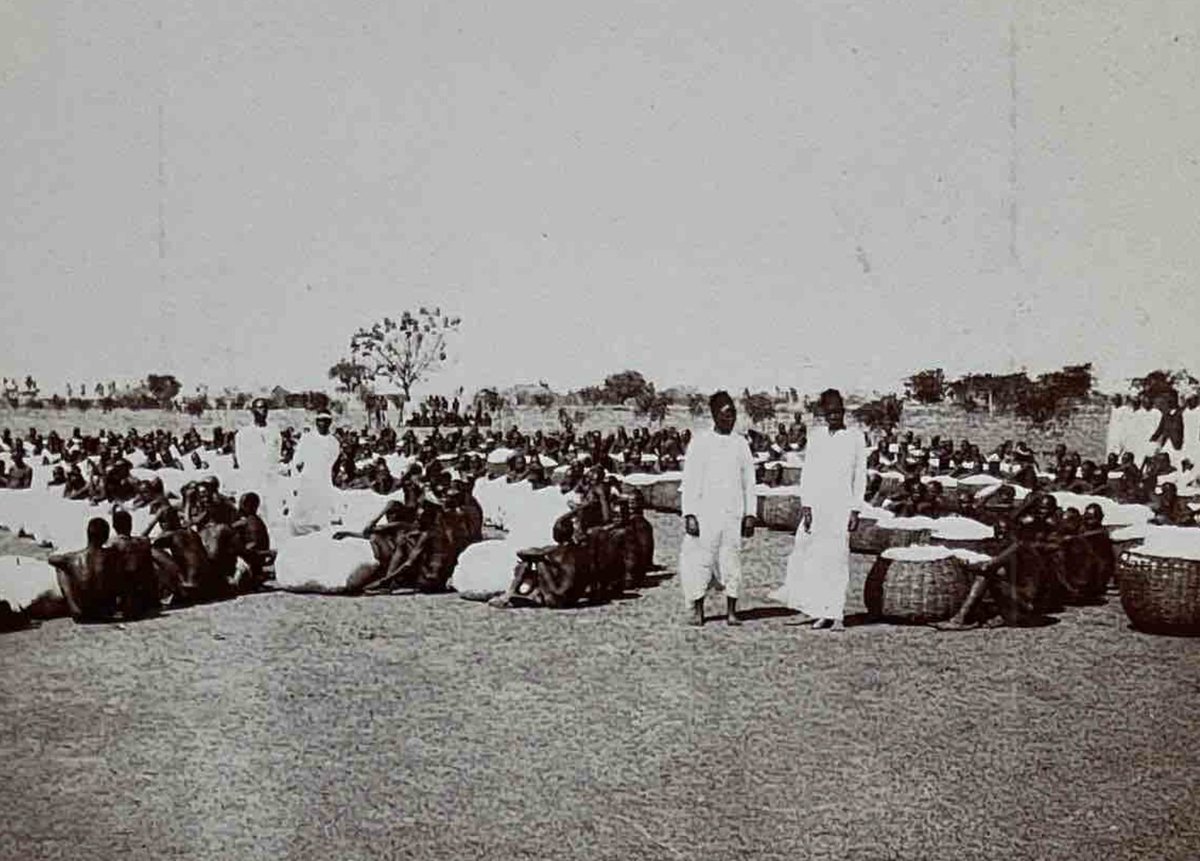On the many National Anthems of Uganda & why the Anthem was Changed after Independence. Throughout 1961 and 1962, there were extensive debates about UG’s new national anthem. The selection of a Ugandan language was a key part of these debates. 1/17 

On 2 Jan. '62, S. Mbabi Katana argued that the national anthem should be produced in a ‘Ugandan African language’. By contrast, H. Kanyike argued that Uganda should follow Tanganyika, and rework ‘the popular Zulu (or Xhosa) African Anthem, whose principal theme in Africa’. 3/17 

M.K. Mubanda suggested that Uganda’s national language should be in Luganda (12 January 62), which prompted one writer to assert that Uganda’s national planners should ‘write a line of anthem in each language’ (13 January 62). And Kenneth Mutalage of Iganga suggested 4/17 

that, by using English, language politics could be avoided altogether on the eve of Independence. Different constituencies soon set about creating anthem committees. Kabaka Yekka announced the creation of theirs on 5 February, 2 days 6/17 

before the National Committee. By 9 May, over 22 entries had been mailed to the National Anthem Committee (NAC). Because NAC worried about ‘a variety of styles of music in the different areas of Uganda’ it announced that it would commission ‘a Western type of 8/17 

tune’. The new anthem was ultimately selected from a pool of 50 compositions. It was announced on 10 Aug. The opening lines of the new national anthem read, ‘Oh, Uganda! Thy people praise thee!’ Within 1 week, writers in the national press wanted to know why the 12/17 

new anthem did not mention God. One writer stated: ‘I feel that a few words are really missing in that anthem. Had the composers have taken the trouble to include a few words […] with the Almighty God.’ But Uganda’s anthem on 9 October remained unchanged. It was not 14/17 

until 19 Dec. that the opening line was altered: ‘May God uphold thee.’ Why was the line finally changed? In late 1962, there were ongoing concerns raised by DP activists re: the legitimacy of the UPC-KY government and its efforts to (re)design Uganda’s national culture. 15/17 

It also did not go unnoticed that George W. Kakoma had been active in Labour Union activism while a student in London in 1947 (see memorandum, where Kakoma is noted), which was used to associate the ruling government with ‘godless’ associations. In response, the 16/17 

Minister of Information, Broadcasting and Tourism, A.A. Nekyon, announced to the National Assembly that the opening line would not be changed. There could be no doubt, God would now uphold Uganda and the two parties that governed it. 17/17
• • •
Missing some Tweet in this thread? You can try to
force a refresh























